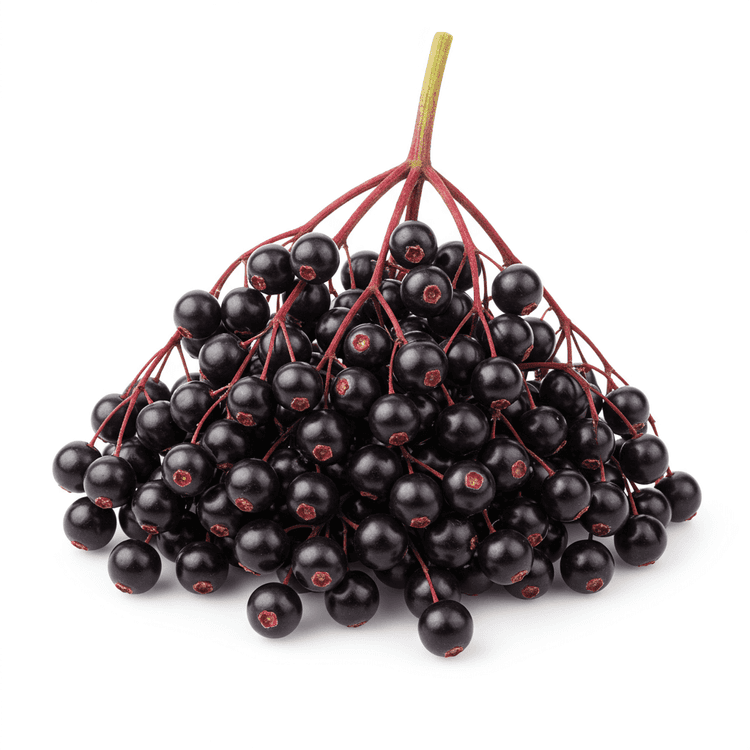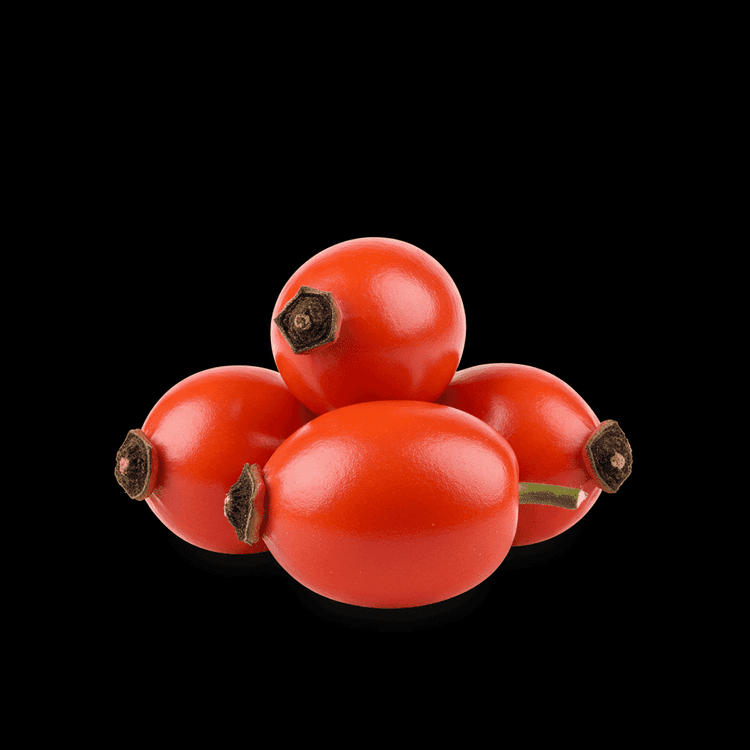
Elderberry
Elderberries are small, dark purple to almost black berries that grow in clusters on the elder tree (Sambucus). They have a slightly tart and earthy flavor with a hint of sweetness when fully ripe. Unripe elderberries can be bitter and potentially toxic, so cooking is essential. The cooked berries offer a juicy texture and are commonly used in jams, jellies, syrups, and wines. Searching for information on how to prepare fresh elderberries or recipes using dried elderberries? You'll find plenty of options!
Common Uses
- Making elderberry syrup for pancakes or waffles: Cooked elderberries are often simmered with sugar and spices to create a flavorful syrup, perfect as a topping or sweetener for beverages.
- Crafting elderberry jam or jelly: The naturally occurring pectin in elderberries makes them well-suited for making homemade jams and jellies with a distinctive tart flavor.
- Baking elderberry pies and crumbles: Elderberries can be incorporated into baked desserts like pies and crumbles, often combined with other fruits like apples or blackberries for added sweetness and complexity.
- Brewing elderberry wine or liqueur: Fermented elderberries are used to produce flavorful wines and liqueurs, popular for their unique taste and potential health benefits.
- Preparing elderberry cordial: A concentrated syrup made from elderberries, used to flavor drinks, desserts, or added to cocktails and sparkling water.
- Creating elderberry sauce for savory dishes: Cooked elderberries can be used to make a tangy sauce to serve with roasted meats like duck or venison, adding a unique fruity element to the savory dish.
Nutrition (per serving)
Nutrition (per serving)
Calories
73.0kcal (3.65%)
Protein
0.7g (1.32%)
Carbs
18.4g (6.69%)
Sugars
7.1g (14.2%)
Healthy Fat
0.3g
Unhealthy Fat
0.0g
% Daily Value based on a 2000 calorie diet
Nutrition (per serving)
Calories
73.0kcal (3.65%)
Protein
0.7g (1.32%)
Carbs
18.4g (6.69%)
Sugars
7.1g (14.2%)
Healthy Fat
0.3g
Unhealthy Fat
0.0g
% Daily Value based on a 2000 calorie diet
Health Benefits
- Rich in antioxidants to combat free radicals and support overall health.
- May help shorten the duration and severity of colds and flu.
- Supports immune system function due to its high vitamin C content.
- Contains anti-inflammatory properties that may reduce swelling and pain.
- Promotes heart health by helping to lower cholesterol levels.
- May improve digestion and alleviate constipation due to its fiber content.
Substitutes
Chefadora AI is here.
Experience smarter, stress-free cooking.
Storage Tips
Fresh elderberries are best used soon after harvesting. If you need to store them, keep them refrigerated in a breathable container (like a loosely covered bowl) for up to a few days. For longer storage, elderberries can be frozen. Spread them out on a baking sheet in a single layer until frozen solid, then transfer them to a freezer-safe bag or container. This prevents them from clumping together. Dried elderberries should be stored in an airtight container in a cool, dark, and dry place to maintain their potency and prevent spoilage.
Marnirni-apinthi Building, Lot Fourteen,
North Terrace, Adelaide, South Australia, 5000
Australia

